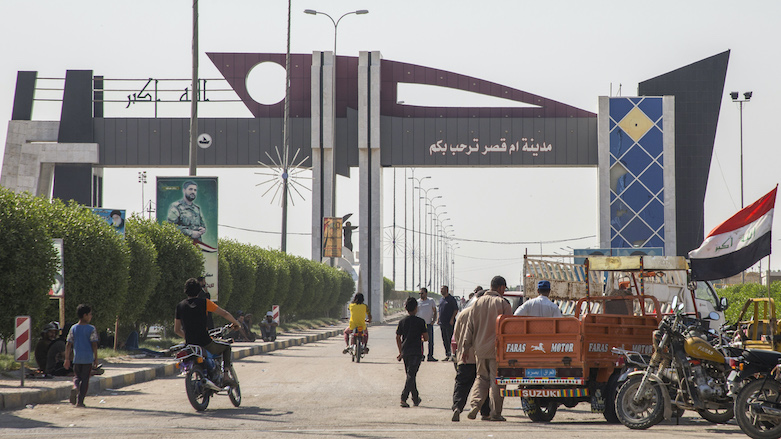Iraqi port reopened while security regains key bridges from protestors: reports

ERBIL (Kurdistan 24) – Iraq’s Umm Qasr port was reopened on Saturday as operations resumed while Iraqi security forces regained control of three bridges in Baghdad.
Port officials said terminals were operating as usual on Saturday, and ships were unloading cargo, Reuters reported.
Since late October, demonstrators have used tires, stones, and metals to block the main entrance to Iraq’s main Gulf port, Umm Qasr.
Umm Qasr receives imports of grain, vegetable oils, and sugar shipments and is one of the most significant ports in Iraq.
Read More: Protesters block Iraq’s Umm Qasr port, halting operations
Iraqi Prime Minister Adil Abdul Mahdi last week called for an end to the nationwide protests, which he complained are affecting the country’s economy.
Abdul Mahdi said the demonstrations should end so that Iraq can resume its trade and economic activities.
“Threatening the oil interests and blocking roads leading to Iraq’s ports is causing big losses exceeding billions of dollars,” the Iraqi prime minister said in a statement.
Elsewhere, in Baghdad, security forces regained control of three key bridges, which protesters had occupied for days.
Authorities retook the Al-Sinek, Al-Shuhada, and Al-Ahrar bridges, AFP reported. However, demonstrators still occupy part of the Al-Jumhuriyah Bridge, near Tahrir Square, where the protests are most prominent, it added.
Al-Jumhuriyah leads to the Green Zone, where the Iraqi Parliament, British, and US embassies are located.
Across Al-Sinek is the Iranian embassy. Al-Ahrar and Al-Shuhada lead to the prime minister’s office and Iraqi state television headquarters.
Since they began in early October, widespread protests in Iraq have resulted in the deaths of at least 270, while some 12,000 have been injured.
Read More: UN human rights office concerned about rising death toll in Iraq protests
Demonstrators are calling for radical change in Iraq’s political system, which they say fails to address their needs, but, rather, serves the interests of a small governing elite.
The protests over the past month reflect widespread dissatisfaction with the economy, including high levels of unemployment, the dismal state of public services, and widespread government corruption.
